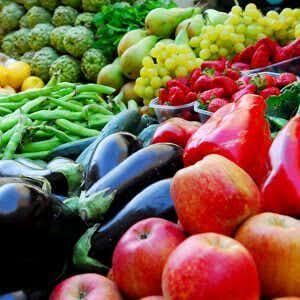
A new study published in JAMA Oncology reports that pro-inflammatory foods increase the risk of colorectal cancer. An anti-inflammatory diet, on the other hand, reduces the risk of cancer (Tabung et al, JAMA Oncology, online, Jan. 18, 2018).
How Did They Study the Effect of Diet on the Risk of Cancer?
The investigators reviewed dietary data from 46,804 men in the Health Professionals Follow-up Study and 74,246 women in the Nurses’ Health Study. These individuals were tracked for more than two decades. They all filled out detailed questionnaires about their dietary habits every few years.
Diet and Inflammation:
The higher the inflammatory potential of the foods eaten, the greater the risk of developing colorectal cancer in both men and women. Foods considered pro-inflammatory included processed meat, red meat, organ meat, refined grains, carbonated beverages with sugar, fruit drinks and tomatoes. Foods that were considered anti-inflammatory included dark yellow vegetables like carrots and squash, green leafy vegetables, fruit juice, beer, wine, tea and coffee.
The authors conclude that inflammation is a factor in the development of colorectal cancer and that anti-inflammatory foods could be helpful in reducing the risk of cancer, especially among overweight men and lean women.
What About Turmeric?
Spices may also help fight inflammation and reduce the risk of cancer. Researchers also reported that both turmeric and its active component curcumin exhibit activity against colorectal cancer cells (Prasad et al, Frontiers in Pharmacology, online, Dec. 12, 2017). Notably, even curcumin-free turmeric was active against these cells. This anti-tumor effect is thought to be mediated in part by blocking inflammation-induced carcinogenesis.
Learn More:
If you would like recipes to help you build a more anti-inflammatory diet, you may find our book, Recipes & Remedies from The People’s Pharmacy, of interest. It contains tasty recipes from some of the country’s leading nutrition scientists.

